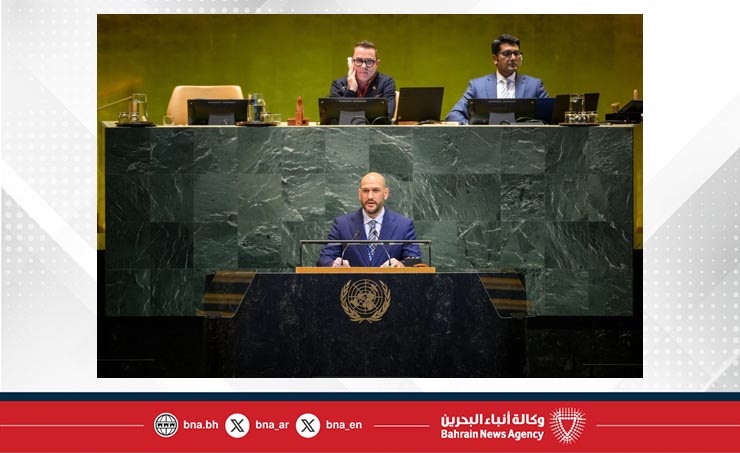LMRA CEO participates in UN high-level meeting on combating human trafficking

New York, Nov. 26 (BNA): Nibras Taleb, Chief Executive Officer of the Labour Market Regulatory Authority (LMRA) and Chairperson of the National Committee to Combat Trafficking in Persons, participated in the high-level meeting of the General Assembly on the Appraisal of the United Nations Global Plan of Action to Combat Trafficking in Persons.
Taleb highlighted the Kingdom's commitment to combating human trafficking and its support for the 2025 Political Declaration on the implementation of the UN Global Plan of Action to Combat Trafficking in Persons. He emphasised Bahrain’s continued institutional approach to strengthening the protection of rights, establishing a comprehensive framework that contributes to crime prevention and addresses all forms of trafficking, while supporting global efforts to enhance labour systems in line with the specificities and obligations of each country.
He said that Bahrain is advancing its efforts to enhance the work environment and combat human trafficking through a government-led, integrated institutional approach. He noted that promoting human rights and combating trafficking are central to the Kingdom’s long-standing approach, rooted in a civilisational and ethical legacy, and form part of its commitment to achieving the Sustainable Development Goals (SDGs). This approach positions Bahrain as a model for protecting rights, with a comprehensive system based on prevention, protection, justice, and partnership, institutionalising measures and integrating them into national policies and plans to ensure sustainability.
Taleb highlighted several initiatives supporting the improvement of the work environment, including the establishment of the Migrant Workers Protection Centre, the first specialised comprehensive centre in the region providing preventive, advisory, and legal services, receiving complaints and grievances, investigating potential indicators of human trafficking, offering shelter to victims and potential victims, and operating a 24-hour call centre.
He also discussed the National Referral Mechanism (NRM), which serves as a protection and assistance tool for potential victims of human trafficking, and the development of a Wage Protection System in partnership with the private sector to ensure wage compliance and reduce labour disputes. He noted the initiative to provide all migrant workers with an International Bank Account Number (IBAN) to facilitate transparency and accountability.
On awareness efforts, Taleb affirmed Bahrain’s commitment to providing guidance channels for migrant workers from the time they arrive in the Kingdom and maintaining advisory support throughout their employment. Awareness programmes are also provided for employers, in collaboration with UN organisations, to leverage international expertise and raise awareness of rights and responsibilities.
In terms of sustainability, he noted efforts to train specialised national cadres through the Regional Training Centre for Combating Human Trafficking, and the signing of a second-phase agreement with the International Organisation for Migration (IOM) to support the centre in building capacity and enhancing regional cooperation in line with international standards.
Taleb confirmed that these efforts have strengthened international confidence in Bahrain and reinforced its position as a global model for improving the work environment and upholding the highest humanitarian standards. He noted that Bahrain has retained its Tier 1 ranking in the US Department of State’s Trafficking in Persons report for eight consecutive years, and reaffirmed the Kingdom’s ongoing support for UN and international efforts to combat all forms of this transnational crime.





